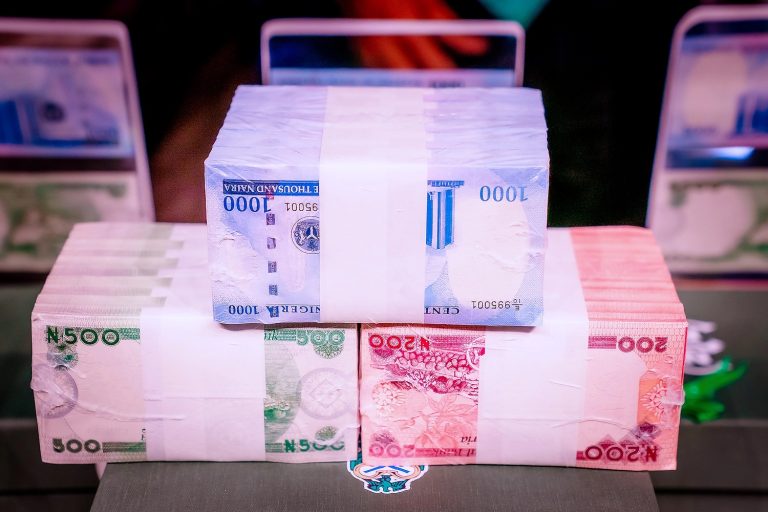
Between 2011 and 2015 when the exchange rate was largely stable, what was happening in Nigeria? Understand that in May 2015, in the black market, Naira exchanged at N197/$; then the official rate was around N167/$. The same team in charge towards the end of that era was still in charge; yes, Emefiele was still the boss of the Central Bank of Nigeria.
The implication is massive: between 1999 to 2015, per USD, Naira moved from N22 to N197; and then from N197 to N1600 in 2024!
In my analysis, something happened from Jan 2016; Nigeria changed policies and went big on Ways and Means (unconstrained printing of money with no fiscal discipline). Quickly, the apex bank lost control. From my data, CBN got so much into the bureaucracy of the executive that it stopped publishing Working Papers. From Feb 2016 till today, CBN has not published any working paper. That obscurity happened because it could not really defend whatever it was doing. With no working papers, we went big on circulars, directives, etc, and no one understood the reasons behind those directives.
Register for Tekedia Mini-MBA edition 19 (Feb 9 – May 2, 2026): big discounts for early bird.
Tekedia AI in Business Masterclass opens registrations.
Join Tekedia Capital Syndicate and co-invest in great global startups.
Register for Tekedia AI Lab: From Technical Design to Deployment (next edition begins Jan 24 2026).
While some of us note the perilous nature of the Naira, understand that Naira was destined to weaken immediately the newly printed Naira (from 2022 Naira redesign) and existing Naira were normalized as legal tenders. Have you considered how much cash we pushed into the system in months after that normalization? The current administration cannot be blamed for everything of course. My only issue was that it did not consider those factors when it put frontal and flank attacks via new policies on the Naira.
I also want to address the point on domiciliary accounts. Good People, Nigeria did not invent dorm accounts. All major economies allow dorm accounts in their banking sectors. In Canada, you can get USD-bank accounts. Most banks in Kenya offer those. HSBC China can open nine currencies for you within hours. And for decades, we have been running dorm accounts; they never blew Naira off paths.
More so, what is $30 billion accumulated over decades in these dorm accounts? Yearly, I posit that about $2 billion are transactional. Assuming we have no dorm accounts and the $2 billion yearly is made available, is that enough to deal with close to $70 billion of yearly imports?
Please note that if Nigeria disbands dorm accounts, we will create problems for our banks. Dorm accounts support our banking sector since without them most correspondent banking will not have any meaning. In other words, without dorm accounts, our banks will struggle internationally. When you send $10k to a Nigerian bank from New York, they credit that bank’s account with a correspondent bank like UBS or JP Morgan. With that fund, our banks can play internationally. (Of course if people are doing illegal things in dorm accounts, prosecute them.)
The debate about Naira and Nigeria will continue but one thing I know is this: people know the right things to do, but we lack the boldness to do them. That explains why the team which managed a stable Naira was also the team which destroyed it because we hate to say “No Sir, that will not happen under my watch”. With our “Yes Sir” syndrome, we allow politicians to have their ways, and at the end, the denominator becomes what the politicians want.
If you look at data, and question why it took Naira more than 40 years to move from N1/$ to N197/$, but nine years to move from N197/$ to N1600/$, it is possible that you can see we could have done certain things differently. And that “differently” is what we are making a case that the government can do because Nigeria is a democracy and the voices of the citizens matter. To start with, can we make Ways and Means printing illegal, today and tomorrow?
Between 2011 and 2015 when the exchange rate was largely stable, what was happening in Nigeria? Understand that in May 2015, in the black market, Naira exchanged at N197/$; then the official rate was around N167/$. The same team in charge towards the end of that era was still in… pic.twitter.com/KJ00nfRhW4
— Ndubuisi Ekekwe (@ndekekwe) February 18, 2024
---
Connect via my
LinkedIn |
Facebook |
X |
TikTok |
Instagram |
YouTube




Buhari only managed his cows, and then Tinubu packaged him to become president. He was never qualified, but he was made president, as par ‘no nonsense General’ that would fight corruption and insecurity. He had zero knowledge about economics. He couldn’t fight corruption nor insecurity, so he was an eternal disaster.
Tinubu’s understanding of economics also centred around printing more money, the other thing is looking for ways to extract more revenues. Anything outside those two areas, all of you waiting for any reprive from him will be profoundly disappointed. There is no new trick coming from him.
You only get disappointed when you are expecting something, and that is why deceitful and delusional Nigerians will remain disappointed, because they built their entire lives in dishonesty and ignoble conducts.
Once you fight or attack truth, you are finished for life.
Sir, if we check the numbers in terms of percentages, the story gets a lot less surprising. Between 1999 to 2015 (16 years) the Naira depreciated by 795.45%. From 2015 to 2024 (9years) the Naira has depreciated by 712.18%. These numbers are quite close and can help us predict where the Naira is headed should the policy makers continue in the current direction with “reckless abandon”